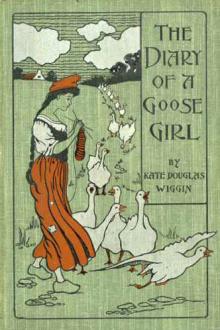The Arabian Nights - - (inspirational books to read txt) 📗

- Author: -
- Performer: -
Book online «The Arabian Nights - - (inspirational books to read txt) 📗». Author -
And as to the couch upon which was the damsel, it had steps, and upon the steps were two slaves, one of them white and the other black; and in the hand of one of them was a weapon of steel, and in the hand of the other a jewelled sword that blinded the eyes; and before the two slaves was a tablet of gold, whereon was read an inscription, which was this:
In the name of God, the Compassionate, the Merciful. Praise be to God, the Creator of Man; and He is the Lord of lords, and the Cause of causes. O thou, if thou know me not, I will acquaint thee with my name and my descent. I am Tedmur, the daughter of the King of the Amalekites. I possessed what none of the kings possessed, and ruled with justice, and acted impartially toward my subjects: I gave and bestowed, and I lived a long time in the enjoyment of happiness and an easy life, and possessing emancipated female and male slaves. Thus I did until the summoner of death came to my abode, and disasters occurred before me. And the case was this: Seven years in succession came upon us, during which no water descended on us from heaven, nor did any grass grow for us on the face of the earth. So we ate what food we had in our dwellings, and after that, we fell upon the beasts and ate them, and there remained nothing. Upon this, therefore, I caused the wealth to be brought, and meted it with a measure, and sent it by trusty men, who went about with it through all the districts, not leaving unvisited a single large city, to seek for some food. But they found it not; and they returned to us with the wealth, after a long absence. So thereupon we exposed to view our riches and our treasures, locked the gates of the fortresses in our city, and submitted ourselves to the decree of our Lord, committing our case to our Master; and thus we all died, as thou beholdest, and left what we had built and what we had treasured. This is our story: Whoso arriveth at our city, and entereth it, let him take of the wealth what he can, but not touch anything that is on my body; for it is the covering of my person. Therefore let him fear God, and not seize aught of it; for he would destroy himself. Peace be on you! I beg God, moreover, to save you from the evil of trials and sickness.
The Emeer Moosa, when he heard these words, again wept and was admonished by what he witnessed. He then said to his companions: "Bring the sacks, and fill them with part of these riches and these vessels and rarities and jewels." And thereupon, Talib, the son of Sahl, said to the Emeer Moosa: "O Emeer, shall we leave this damsel with the things that are upon her? They are things that have no equal, nor is the like of them at any time found, and they are more than the riches thou hast taken, and will be the best present by which thou mayest ingratiate thyself with the Prince of the Faithful." But the emeer replied: "Heardest thou not that which the damsel hath given as a charge, in the inscription upon this tablet? Moreover, and especially, she hath given it as a charge offered in confidence, and we are not of the people of treachery." The Vizier Talib, however, said: "And on account of these words wilt thou leave these riches and these jewels, when she is dead? What then should she do with these things, which are the ornaments of the world, and the decoration of the living? With a garment of cotton might this damsel be covered, and we are more worthy of the things than she." Then he drew near to the steps, and ascended them until he reached the spot between the two slaves, when, lo, one of these two smote him upon his back, and the other smote him with the sword that was in his hand, and struck off his head, and he fell down dead. So the Emeer Moosa said: "May God not regard with mercy thy resting-place! There was, in these riches, a sufficiency; and covetousness doth dishonour the person in whom it existeth!" He thereupon gave orders for the entry of the troops, who accordingly entered, and they loaded the camels with part of those riches and minerals; after which the Emeer Moosa commanded them to close the gate as it was before.
They then proceeded along the sea-coast until they came in sight of a high mountain overlooking the sea. In it were many caves, and, lo, in these was a people of the blacks, clad in hides, and with burnouses of hides upon their heads, whose language was not known. And when they saw the troops, they ran away from them, and fled, while their women and their children stood at the entrances of the caves. So the Emeer Moosa said: "O Sheikh Abd-Es-Samad, what are these people?" And he answered: "These are the objects of the inquiry of the Prince of the Faithful." They therefore alighted, and the tents were pitched, and the riches were put down; and they had not rested when the king of the blacks came down from the mountain, and drew near to the troops. He was acquainted with the Arabic language; wherefore, when he came to the Emeer Moosa, he saluted him; and the emeer returned his salutation, and treated him with honour. Then the king of the blacks said to the emeer: "Are ye of mankind, or of the genies?" The emeer answered: "As to us, we are of mankind; and as to you, there is no doubt but that ye are of the genies, because of your seclusion in this mountain that is separated from the world, and because of the greatness of your make." But the king of the blacks replied: "Nay, we are a people of the race of Adam, of the sons of Ham, the son of Noah, on whom be peace! And as to this sea, it is known by the name of El-Karkar."
The Emeer Moosa then said to him: "We are the associates of the King of El-Islam, Abd-El-Melik the son of Marwan; and we have come on account of the bottles of brass that are here in your sea, and wherein are the devils imprisoned from the time of Solomon, the son of David. He hath commanded us to bring him some of them, that he may see them, and divert himself by the view of them." And the king of the blacks replied: "Most willingly." Then he feasted him with fish, and ordered the divers to bring up from the sea some of the bottles of Solomon; and they brought up for them twelve bottles; wherewith the Emeer Moosa was delighted, and the Sheikh Abd-Es-Samad also, and the soldiers, on account of the accomplishment of the affair of the Prince of the Faithful. The Emeer Moosa thereupon presented to the king of the blacks many presents, and gave him large gifts. In like manner, too, the king of the blacks gave to the Emeer Moosa a present consisting of wonders of the sea.
Then they bade him farewell, and they journeyed back until they came to the land of Syria, and went in to the Prince of the Faithful; whereupon the Emeer Moosa acquainted him with all that he had seen, and all that had occurred to him with respect to the verses and histories and admonitions, and told him of the case of Talib the son of Sahl. And the Prince of the Faithful said to him: "Would that I had been with you, that I might have beheld what ye beheld!" He then took the bottles, and proceeded to open one after another, and the devils came forth from them, saying: "Repentance, O Prophet of God! We will not return to the like conduct ever!" And Abd-El-Melik the son of Marwan wondered at this. After this, the Prince of the Faithful caused the riches to be brought before him, and divided them among the people. And he said: "God hath not bestowed upon any one the like of what He bestowed upon Solomon the son of David."
This is the end of that which hath come down to us, of the history of the City of Brass, entire. And God is all-knowing.
THE STORY OF ALI BABA AND THE FORTY THIEVESIn a town in Persia, there lived two brothers, one named Cassim, the other Ali Baba. Their father left them scarcely anything; but as he had divided his little property equally between them, it would seem that their fortune ought to have been equal; but chance determined otherwise.
Cassim married a wife, who soon after became heiress to a large sum, and to a warehouse full of rich goods; so that he all at once became one of the richest and most considerable merchants, and lived at his ease. Ali Baba, on the other hand, who had married a woman as poor as himself, lived in a very wretched habitation, and had no other means to maintain his wife and children but his daily labour of cutting wood, and bringing it to town to sell, upon three asses, which were his whole substance.
One day, when Ali Baba was in the forest, and had just cut wood enough to load his asses, he saw at a distance a great cloud of dust, which seemed to be driven toward him: he observed it very attentively, and distinguished soon after a body of horse. Though there had been no rumour of robbers in that country, Ali Baba began to think that they might prove such, and without considering what might become of his asses, was resolved to save himself. He climbed up a large, thick tree, whose branches, at a little distance from the ground, were so close to one another that there was but little space between them. He placed himself in the middle, from whence he could see all that passed without being discovered; and the tree stood at the base of a single rock, so steep and craggy that nobody could climb up it.
The troop, who were all well mounted and armed, came to the foot of this rock, and there dismounted. Ali Baba counted forty of them, and, from their looks and equipage, was assured that they were robbers. Nor was he mistaken in his opinion; for they were a troop of banditti, who, without doing any harm to the neighbourhood, robbed at a distance, and made that place their rendezvous; but what confirmed him in his opinion was, that every man unbridled his horse, tied him to some shrub, and hung about his neck a bag of corn which they brought behind them. Then each of them took his saddle wallet, which





Comments (0)